2023 Keynote Speakers
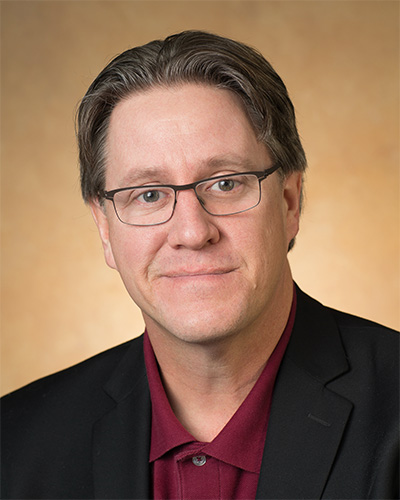
Larry S. Sherman, PhD - Professor of Neuroscience, Oregon Health & Science University (OHSU)
Music and the Aging Brain
Whenever a person engages with music, countless neurons are firing―when a piano student practices a scale, a jazz saxophonist riffs on a melody, someone sobs to a sad song, or a wedding guest gets down on the dance floor. Playing an instrument requires all of the resources of the nervous system, including cognitive, sensory, and motor functions. Something as seemingly simple as listening to a tune involves mental faculties most of us don’t even realize we have. In this presentation, Dr. Larry Sherman discusses all of the ways that music influences our brains, providing examples with live music! He will also discuss how music can influence brain aging.
Biography
Dr. Larry S. Sherman is a Professor of Neuroscience at the Oregon Health & Science University (OHSU). He is also the President of the Oregon and Southwest Washington Chapter of the Society for Neuroscience. He has over 100 publications related to brain development and neurodegenerative diseases including Alzheimer’s disease and multiple sclerosis.
Dr. Sherman has also given hugely popular talks and performances (including playing the piano) around the globe on topics that include music and the brain, the neuroscience of pleasure and love, the neuroscience of racism, and other topics. His book, Every Brain Needs Music: The Neuroscience of Making and Listening to Music, which he wrote with Portland musician and music professor Dennis Plies, was recently published by Columbia University Press. He has made numerous television appearances and given radio interviews, discussing various topics related to neuroscience. He was invited by John Frohnmayer, former head of the National Endowment for the Arts, to serve on a panel discussing the origins of creativity that was filmed for PBS. The Oregon Museum of Science and Industry and Portland Monthly Magazine recognized Dr. Sherman as one of the most innovative people in the State of Oregon. In 2012, he was recognized by the OHSU School of Medicine Faculty Senate and the OHSU foundation for Outstanding Teaching, and was awarded the Mary Omberg Award for outstanding support of science education in Oregon and Southwest Washington. He was presented with an outstanding researcher award by the National Multiple Sclerosis Society in 2020.
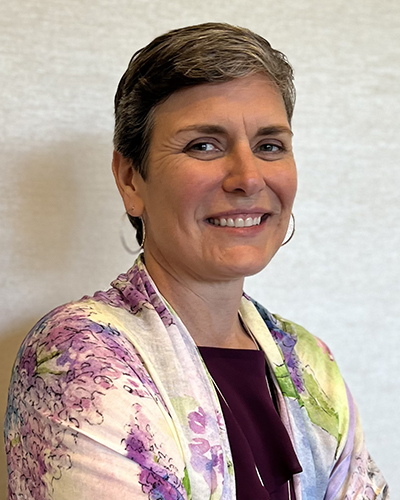
Laura DeLoye - Program & Education Manager for the Alzheimer's Association, San Luis Obispo, CA
From Science to Practice: Experiencing Music for Caregiver Well-Being
This presentation continues the discussion of the impact of music for well-being. Attendees will have the opportunity to participate in live music making experiences. Topics of discussion will include methods to support adults with Intellectual and Developmental Disabilities, people with dementia and their caregivers as they age, and how caregivers for older adults can incorporate music experiences to assist in motivating, calming, energizing, and deepening relationships. Caregivers will learn how to incorporate support from immediate surroundings to create and implement a music interaction for the aging adult to yield a change in behavior.
Biography
Laura DeLoye serves as the Program & Education Manager for the Alzheimer’s Association California Central Coast chapter in San Luis Obispo County. In that role she coordinates dementia caregiver support groups, education, volunteers, information & referrals, and community outreach. She also leads care consultations with family members caring for loved ones with dementia. Laura has worked in all levels of care with older adults and caregivers for over 25 years as a board-certified music therapist, community coordinator, adult day center director and non-profit organization director.
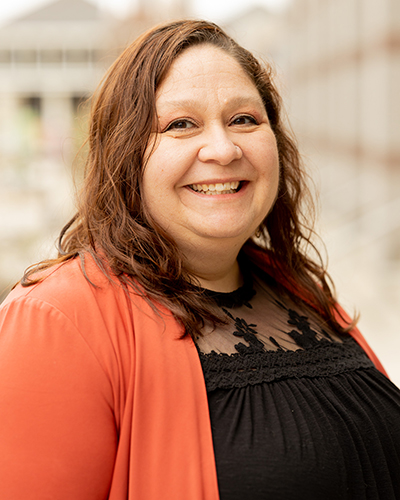
Kim Schlegel, MSW, LCSWA, CMC - Intellectual and Developmental Disabilities Coordinator North Carolina Psychiatric Assistance Line, University of North Carolina at Chapel Hill
From Science to Practice: Experiencing Music for Caregiver Well-Being
This presentation continues the discussion of the impact of music for well-being. Attendees will have the opportunity to participate in live music making experiences. Topics of discussion will include methods to support adults with Intellectual and Developmental Disabilities, people with dementia and their caregivers as they age, and how caregivers for older adults can incorporate music experiences to assist in motivating, calming, energizing, and deepening relationships. Caregivers will learn how to incorporate support from immediate surroundings to create and implement a music interaction for the aging adult to yield a change in behavior.
Biography
Kim Schlegel is the Intellectual and Developmental Disabilities (IDD) Coordinator for the IDD branch of the North Carolina Psychiatric Assistance Line at the University of North Carolina at Chapel Hill. Kim has supported individuals with IDD and their families, across the life course, for over twenty years. She has served as an IDD Care Manager, music therapist, direct support staff and staff supervisor, parent/family and staff trainer, and temporary guardian. These experiences have led Kim to support and advocate for neurodiversity affirming care, as well as ensuring individuals with IDD are allowed the dignity of risk and can be included in their community to the degree they desire. Kim is dedicated to offering support to individuals with IDD and their families to ensure they can live their best lives in all environments.
Speakers
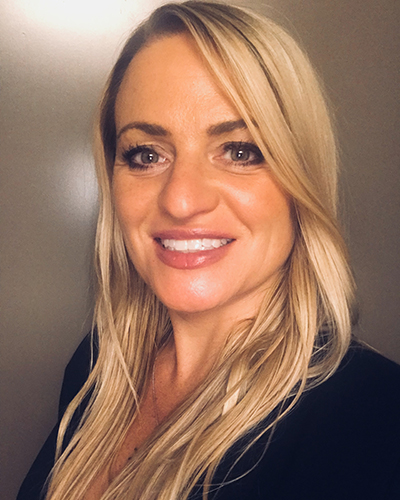
Angela Allbee, MPA - Oregon Psilocybin Services Section Manager, Oregon Health Authority Public Health Division
Oregon Psilocybin Services: Implementing the nation’s first regulatory framework for psilocybin services
Psilocybin is a psychedelic compound that occurs naturally in over 200 species of mushrooms and has been used for centuries by various indigenous and tribal communities throughout the world for spiritual, ceremonial, and other purposes. A growing body of research suggests that psilocybin may help reduce depression, anxiety, end of life distress, trauma, and excessive alcohol, tobacco, and other substance use. In 2020, Oregon voters passed the Psilocybin Services Act. Join Angie Allbee, Section Manager for Oregon Psilocybin Services, as she shares challenges and successes of implementing the Oregon Psilocybin Services Act and the creation of safe, effective, and equitable psilocybin services in Oregon. Angie will discuss how this work aligns with the Oregon Health Authority’s goal to eliminate health inequities and is part of broader efforts to advance collective public health goals, such as Oregon’s State Health Improvement Plan, Healthier Together Oregon. Although research is promising, psilocybin remains a schedule I substance under the Federal Controlled Substances Act. Audience members will walk away with a deeper understanding of the science, the history, and challenges and successes of implementing the Oregon Psilocybin Services Act while shifting from a drug policy framework rooted in the ‘War on Drugs’ to a health policy approach that holds promise for healing and wellness.
Biography
Angela Allbee joined the Oregon Health Authority Public Health Division as Oregon Psilocybin Services Section Manager after working to shape legislative policy for nearly a decade. After serving as Senior Policy Advisor for Oregon Health Authority Government Relations, she served in policy roles with the Oregon Department of Human Services, Oregon Criminal Justice Commission, Oregon House Majority Office, and Oregon Legislative Assembly. Prior to policy work in Oregon, Angela spent nearly a decade in the non-profit sector serving older adults, individuals experiencing disabilities, refugees, asylees, veterans, and survivors of domestic and sexual violence. She recently served on the Board of Advisors for the Voxapod Menstrual Equity Project and worked with community members in rural St. Thomas, Jamaica to secure infrastructure for water through the Access to Safe Drinking Water Project. Angie received her Executive Master of Public Administration degree from the Hatfield School of Government at Portland State University.
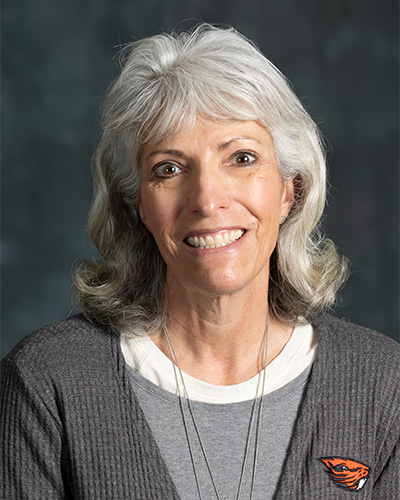
Cindy K. Brown, MA - 4-H Youth Development/SNAP-Ed Educator, Oregon State University Sherman County Extension
A Quick Overview of Great Programs for Educating Older Adults About Nutrition and Healthy Living
Here’s a chance to get familiar with three Nutrition Education and Outreach Program curriculum specifically targeted for the older adult audience: Seniors Eating Well; Eat Smart, Live Strong; and Food Hero for Older Adults. Join Cindy Brown of Sherman County Extension who began serving this audience fall 2022, and has already utilized these resources in Sherman County.
Sherman County has over 26% of local residents aged 65 and older. The Sherman County Senior Center in Moro is required to provide educational programs as part of its regional grant funding, but had not been doing so. This new partnership between Sherman Extension and the Senior Center offered free educational programming for the older adult audience at this congregate meal site. This is an example of adapting to meet current and future needs in this small rural county, with a strong partnership between Extension and Sherman County.
Additionally, to better serve the community, Brown obtained permission from the state SNAP-Ed team to offer programming at satellite locations of the Senior Center throughout the county. This equitable approach to programming locations allows a more diverse audience to benefit from these educational programs, as there may be a class right in their hometown so they can walk, get a ride from a friend, have minimal driving time to attend, or not have to drive on snowy or icy roads.
Participants will find that these programs are well-written, extremely easy to present to a group, require minimal preparation, and are well-received by the older adult audience. Based on responses from Sherman participants, the classes helped increase awareness of fruit and vegetable consumption, helped people pay more attention to what they were choosing to eat and how they were choosing to move on a daily basis, and be more intentional about adding healthy behaviors.
Biography
Cindy Brown, 4-H Youth Development/SNAP-Ed Educator, Oregon State University Sherman County Extension. Joyfully serving her rural county since 2011 as an Extension educator in youth development, healthy living and SNAP-Ed work. Began new programming serving older adults fall 2022 at the Sherman County Senior Center and satellite locations in the county. Combines her personal interests in health, physical activity, cooking and gardening with OSU and other Extension curriculum for effective learning opportunities for her older adult audiences.

Laura DeLoye - Program & Education Manager for the Alzheimer's Association, San Luis Obispo, CA
Compassionate Communication in Dementia
Caregiving is identified as a significant public health issue. Providing care to a family member can be rewarding as well as stress-filled, impacting a caregiver’s life in many ways. Focus will be on supporting effective communication strategies with family caregivers of those with dementia, decoding behavioral messages and triggers, creating a positive difference for the care team.
Biography
Laura DeLoye serves as the Program & Education Manager for the Alzheimer’s Association California Central Coast chapter in San Luis Obispo County. In that role she coordinates dementia caregiver support groups, education, volunteers, information & referrals, and community outreach. She also leads care consultations with family members caring for loved ones with dementia. Laura has worked in all levels of care with older adults and caregivers for over 25 years as a board-certified music therapist, community coordinator, adult day center director and non-profit organization director.
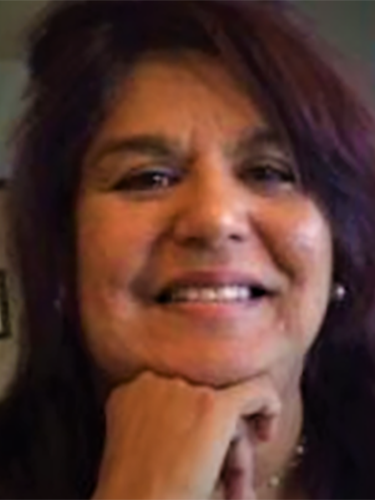
Nirmala Dhar, MSW, LCSW - Older Adult Behavioral Health Coordinator, Oregon Health Authority Health Systems Division
First Session
Blue Zones Living! How to Live to be a Hundred!
Learning Objectives:
- Gain knowledge of what and where are Blue Zones regions
- Understand the concept of Healthspan vs Lifespan
- Apply lessons learned about healthy aging in our everyday lives
Second Session
Preventing Suicide Deaths in Community Based Living Settings
Learning Objectives:
- Learn about prevalence of older adult suicide
- Gain knowledge of risk and protective factors
- Learn about creating supportive living environments
- Learn about some basic prevention strategies and resources
Biography
Nirmala Dhar is a licensed clinical social worker with a Master’s in Social Work from the Brown School of Social Work, Washington University, St. Louis, Missouri and Bombay University, India. She has 36 years of experience in behavioral health in the public sector in Missouri, New Jersey and Oregon. She is a senior policy analyst and the Older Adult Behavioral Health Coordinator for Oregon Health Authority‘s Health Systems Division. In this role, she is the Project Director for the Older Adult Behavioral Health Initiative. Prior to this position she worked for Clackamas County Behavioral Health for 18 years. This included 10 years as the geriatric mental health specialist for the County. She has provided trainings on a variety of topics over the past twenty–five years and enjoys coaching and mentoring new clinicians. Her areas of professional interest include positive aging, social justice, workforce development, quality improvement, health metrics and health transformation.

Diana J. Govier, PhD, MPH - Center to Improve Veteran Involvement in Care
Improving Care Coordination to Support Health and Healthcare for People with Chronic Health Conditions
The presentation will provide an overview of current research aimed at understanding how care coordination and care navigation works to support health and healthcare, with special focus on people with advancing age and chronic conditions. We will highlight trends in care coordination services to support people with high risk conditions in the Veterans Health Administration. We will also describe our multimethod research underway to gain insight from patient and provider perspectives on how care coordination works and how well it is integrated with overall health care delivery, and opportunities for improvement. As care coordination and care navigation practices are in wide and varied use in the US, we will share insights that may be applied in other settings.
Biography
Dr. Diana J. Govier is a Health Economist and Co-Investigator at the Center to Improve Veteran Involvement in Care (CIVIC), VA Portland Healthcare System. In this role, Diana engages in collaborative research studies that aim to evaluate the role of health policy and healthcare delivery and financing on Veterans’ health and wellbeing. Currently, projects Diana is working on include exploring the delivery of care coordination in the VA and its impacts on healthcare use and costs, and experiences of care integration among Veterans with complex health and social needs; assessing effects of the VA MISSION Act on healthcare utilization and care experiences among Veterans including those with traumatic brain injury; and examining costs of firearm injury among rural and urban Veterans. Diana also serves as a faculty member in the Oregon Health & Science University – Portland State University School of Public Health where she teaches courses in Health Systems Management and Policy. Diana holds a PhD in Health Policy, an MPH in Health Management and Policy, and a BS in Psychology.”
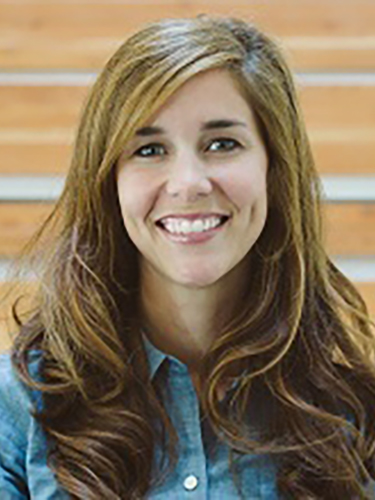
Stephanie Grutzmacher, PhD - Associate Professor, College of Public Health and Human Sciences, Oregon State University
Social Services Providers’ Strategies to Improve Older Adults’ Food Security
Despite a constellation of social services available to older adults to address food and other basic needs insecurity, older adults may face numerous hassles and barriers to accessing and using these services. The COVID-19 pandemic worsened risk factors for food insecurity while also limiting the ways in which agencies could support older adults given their disproportionate vulnerability to the virus. To identify ways to support older adult food security, we interviewed22 social service providers from 13 public and private social service agencies across Oregon. Findings from our study identified 1) a broad range of strategies and suggestions for individual, interpersonal, community, and policy-level practices and 2) specific ways in which the pandemic altered older adults’ access to food and other resources. This session will engage participants in a discussion of the identified strategies and their implications for policy and practice. This work represents an important step in further developing an agenda for more effective and comprehensive support of older adult food security.
Biography
Stephanie Grutzmacher is an Associate Professor of Nutrition and Global Health at Oregon State University. Her work engages community collaborators and Extension to develop, implement, and evaluate programs and practices in family, school, service agency, worksite, retail, and community settings. Dr. Grutzmacher’s applied research explores the unique experiences of food insecurity among low-income populations in order to identify best practices for food safety net and food access programs like SNAP, Double Up Food Bucks, and school meals.
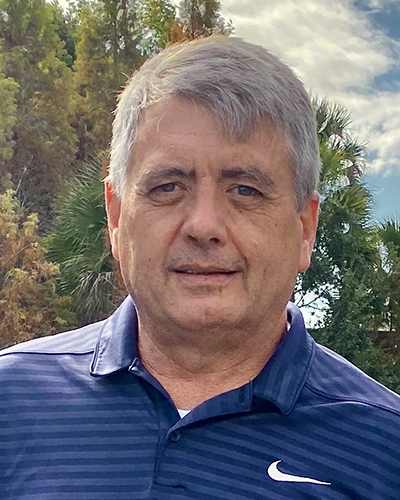
Rod Harwood, QMHP-C - Older Adult Behavioral Health Coordinator, Greater Oregon Behavioral Health Inc.
Living the 36 Hour Day – Conversations with Care Partners of Those Living with Dementia
Caring for someone living with dementia is a 24-hour responsibility but often feels like a 36-hour day. Care Partners choose to join those in their care on this wilderness journey that is called dementia. But the communities in which they live are often unaware of their struggle or how to support them. The speaker will share with participants in this training videoed conversations with Care Partners talking about their experience. They will hear about their struggles and the barriers that Care Partners face as they navigate this path that no one else can take for them. Participants will also hear from the Care Partners about the personal toll this journey has taken on their own well-being. Finally, they share wisdom that gained along the way including what they have found to be helpful in terms of their own self-care and what others can do to support them. Objectives Participants will:
1. Describe the struggles and barriers of those living the 36 hour day in order be a more effective advocate for Care Partners of those living with dementia
2. Determine helpful strategies of support that can be provided to Care Partners in their own community
3. Identify support resources for Care Partners across the State of Oregon
Biography
Rod is an Older Adult Behavioral Health Coordinator with GOBHI serving Eastern Oregon. He has 37 years of healthcare experience providing clinical support in hospital, mental health, and Hospice settings. Rod is a trained Positive Approach to Care (Dementia Care) Enhanced Trainer & Advanced Consultant. He facilitates the Eastern Oregon Caregivers Support Group for the Alzheimer’s Association. He is one of twenty-four specialists who are supporting a statewide initiative to provide behavioral health for older adults and people with disabilities. Through his role, he promotes enhanced collaboration and coordination among the agencies serving older adults, which provides complex care consultation and ensures those caring for older adults are well trained.
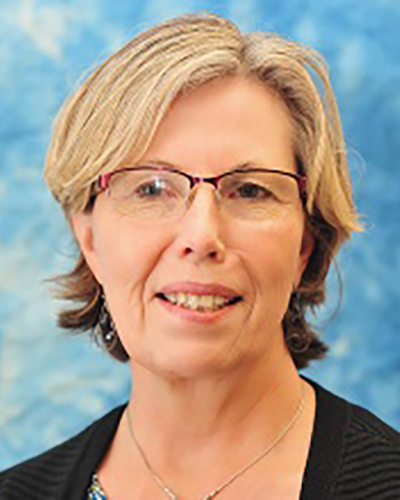
Denise Marie Hynes, BSN, MPH, PhD, RN, FAMIA - Senior Research Career Scientist at the Veterans Affairs Portland Health Services and Professor of Health Management and Policy, in the College of Public Health and Human Sciences
Improving Care Coordination to Support Health and Healthcare for People with Chronic Health Conditions
The presentation will provide an overview of current research aimed at understanding how care coordination and care navigation works to support health and healthcare, with special focus on people with advancing age and chronic conditions. We will highlight trends in care coordination services to support people with high risk conditions in the Veterans Health Administration. We will also describe our multimethod research underway to gain insight from patient and provider perspectives on how care coordination works and how well it is integrated with overall health care delivery, and opportunities for improvement. As care coordination and care navigation practices are in wide and varied use in the US, we will share insights that may be applied in other settings.
Biography
Denise M. Hynes, MPH, PhD, RN, FAMIA is a Senior Research Career Scientist at the Veterans Affairs (VA) Portland Health Services Research and Development (HSR&D) Center to Improve Veteran Involvement in Care (CIVIC) and Professor of Health Management and Policy, in the College of Public Health and Human Sciences (CPHHS) and Director of Health Data and Informatics in the Center for Quantitative Life Sciences (CQLS) at Oregon State University. She is also a courtesy faculty in the School of Nursing at Oregon Health & Science University. She received her Bachelor of Science in Nursing at Loyola University in Chicago, Masters in Public Health at Johns Hopkins University in Baltimore, and Doctorate in Health Policy and Administration from the University of North Carolina at Chapel Hill. She completed postdoctoral fellowships in Health Policy at University of North Carolina at Chapel Hill, and in Executive Leadership in Academic Medicine, at Drexel University. She is a registered nurse with a license from the State of Illinois. Dr. Hynes moved to Oregon in 2018 to explore new horizons and expand her research program.
Dr. Hynes’ research focuses on innovative approaches to improve healthcare quality, access, and economic burden. Her current research focus is on examining outcomes from COVID and studying approaches to improve care coordination and outcomes for people with chronic health conditions. US Veterans are a special focus of her research.
She is currently Principal Investigator on three major VA grants: one focused on care coordination impacts on Veterans with complex chronic conditions; another focused on the long-term outcomes of COVID-19 infection; and another research support center focused on comparative studies of VA direct and community care for Veterans across the US. At OSU she leads a component of a PCORI intervention study focused on improving care coordination and quality of life for parents and their adolescents with intellectual and developmental disabilities, which is led by colleagues at the University of North Carolina at Chapel Hill. In addition to her scientific projects, she mentors STEM undergraduate students, nursing students, health policy graduate students, postdoctoral fellows, and early career clinical scientists. Professor Hynes has produced more than 280 journal articles, technical reports, book chapters, and scientific reports.
Dr. Hynes has been extensively involved in the VA HSRD program and VA clinical services throughout her career. She has collaborated with VA Offices of Pharmacy, Nursing Service, Social Work and Care Management, Community Care, Renal, Oncology, and Surgery Services, supporting program evaluation and analyses. She co-founded and directed the HSR&D VA Information Resource Center (VIReC) from 1998-2018, a foundational health data knowledge center in the VA.
Dr. Hynes research has been supported by funding VA HSR&D, VA CSP, PCORI and NIH. She has served on advisory committees related to health data resources for research including for the US Assistant Secretary for Planning and Evaluation and numerous VA programs. She has served as a consultant for the National Academy of Science Engineering and Medicine. Dr. Hynes has received recognition for her research accomplishments as a VA Secretary’s Award for Excellence in Nursing: Special Research Award (2002), VA HSR&D Research Career Scientist (2006-2017), Executive Leadership for Academic Medicine (ELAM) Award (2014), and Fellow of the American Medical Informatics Association (2020). She earned recognition as VA HSR&D Senior Research Career Scientist with an award through 2028.
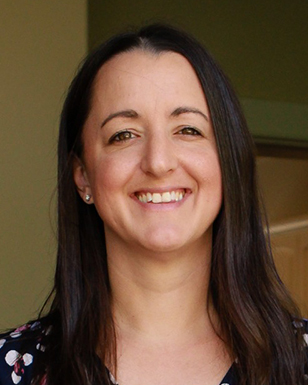
Alicia M. Lucke, MA - Program Manager, Oregon Cascades West Council of Governments
Financial Literacy and Wellness
Financial literacy and wellness is a top issue that affects the lives of many Oregonians, particularly at a time when COVID supports are sun-setting and the cost of living is high. This session will introduce Oregon Cascades West Council of Government’s new Stand By Me-Oregon Program which trains local coaches to help residents take control of finances, navigate budget mapping, reduce debt, increase savings, and more.
Biography
Alicia Lucke serves as a Program Manager for the Oregon Cascades West Council of Governments where she oversees a variety of community-facing Programs to support the Linn, Benton, and Lincoln region. Alicia earned a B.A. in Political Science and Spanish as well as a M.A. in Development Administration from Western Michigan University. Alicia is bilingual and has experience as a federal training linguist, Head Start family advocate, and former Director of Cultural Health with the American Heart Association.
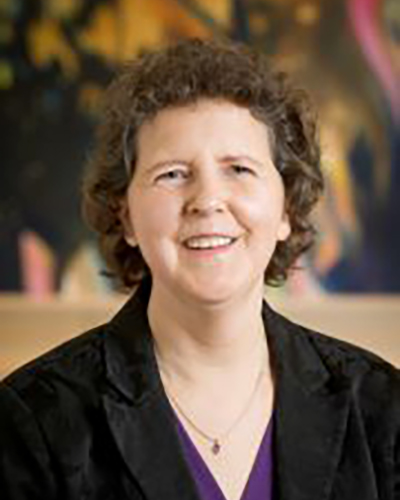
Kathy Magnusson, D.V.M., PhD - Professor in the Department of Biomedical Sciences, Carlson College of Veterinary Medicine and Principal Investigator, Linus Pauling Institute at Oregon State University
This is Your Brain on Aging
Aging is associated with many changes in the body and the brain is not spared. There are many brain functions, such as memory and cognitive flexibility, that generally show declines during aging in people. Some functions, however, such as world knowledge and language, are relatively spared. In this talk, we will explore the changes that occur during aging in the brain and interventions for us that show some promise for reducing the impact of aging.
Biography
Dr. Kathy Magnusson received a D.V.M. degree from the University of Minnesota College of Veterinary Medicine in 1982 and pursued a Ph.D. in Veterinary Anatomy/Neuroscience, which she earned in 1989. Following her Ph.D., she has taught and done research at Colorado State University and the WWAMI Medical Program at University of Idaho. She is currently a Professor in the Department of Biomedical Sciences, Carlson College of Veterinary Medicine and a Principal Investigator in the Linus Pauling Institute at Oregon State University. She has 56 peer reviewed publications and 5 reviews and chapters, which are specifically on the aging brain. She has been funded by NIH for a majority of her research career, including several Career Development awards. The primary research focus in the Magnusson lab is designed to understand the effects of aging on cognition in humans and rodents, including learning, memory and cognitive flexibility.
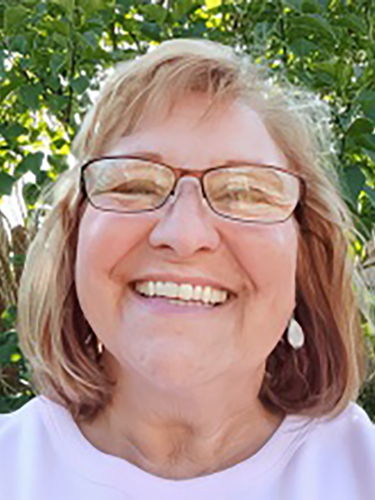
Stephanie Polizzi, MPH, RDN, DipACLM - Associate Professor of Practice, Oregon State University
Longevity and Health
Science demonstrates that diets high in fruits, vegetables, legumes and other plant foods provide protection from diet-related chronic diseases that shorten lifespan, such as heart disease, cancer and diabetes. Diets such as the DASH, Mediterranean, vegetarian and blue zone diets, can lower inflammation, reduce risk of disease and lengthen telomeres. Adding more plant foods to a daily diet pattern may help us to enjoy a long, healthy and potentially disability-free life.
Biography
Stephanie Polizzi is a Registered and Licensed Dietitian Nutritionist with more than 25 years of experience in nutrition and community health. She holds a Master’s degree in Public Health Nutrition from Loma Linda University and specializes in plant-based nutrition to prevent, arrest and reverse today’s diet-related chronic diseases. She is a certified health education specialist and wellness coach, board certified in lifestyle medicine by the American Board of Lifestyle Medicine and a Fellow of the Academy of Nutrition and Dietetics.
For the past 17 years, she has served as faculty for OSU Extension Family and Community Health, working to provide community programming and resources across two counties.
Stephanie conducts workshops, webinars, trainings, cooking classes and lifestyle medicine programs. She has created over 50 nutrition presentations and handouts focused on disease prevention and reversal and her hybrid Applied Nutrition course has been offered regionally.
Her consumer/patient handouts, Arresting Alzheimer’s, Diabetes Reversed, Foods that Fight Cancer, Foods that Fight Inflammation and Lowering Cholesterol with Food are the first nutrition and disease publications now in the OSU Extension Catalog. These publications are also available in Spanish.
Stephanie sits on numerous steering committees that address food access, nutrition education, cancer, health equity and community health. As the only dietitian who attends these meetings, her goal is to make sure nutrition always has a seat at the table and is included in plans, programs, initiatives and policy-making.
For the past 7 years, she has served as chair of the Coos Food and Nutrition Group, a subcommittee of the county’s Community Health Improvement Plan, working to improve access to, and intake of, fruits, vegetables and other plant foods for youth and adults. She has created monthly education resources for the Healthy Bytes Initiative since 2017 including posters, handouts, recipes, slides and articles, and also creates a monthly newsletter for the Food and Nutrition Group.
Stephanie has conducted community studies in cancer and nutrition, and consulted for business worksite wellness programs. She contributes nutrition articles to multiple local newsletters and websites and offers her skills in desktop publishing to community partners who request assistance with marketing materials. She takes an active role in professional dietetic practice groups and contributes written nutrition resources for both healthcare professionals and consumers. She is also a contributing author for Forks Over Knives magazine.
In addition, she enjoys mentoring dietetic interns, dental, medical, pharmacy and nursing students, helping them to gain experience in addressing the health needs of rural communities. And she offers nutrition and lifestyle professional in-services and CMEs at the local hospital.
Most of the programs and services offered through OSU Extension are free or very low cost, including professional services and consulting.
Many of her webinars, handouts and resources can be viewed or downloaded by going to: https://extension.oregonstate.edu/coos/healthy-families-communities.
Stephanie resides in Bandon OR, halfway between the Extension offices in Coos and Curry counties.
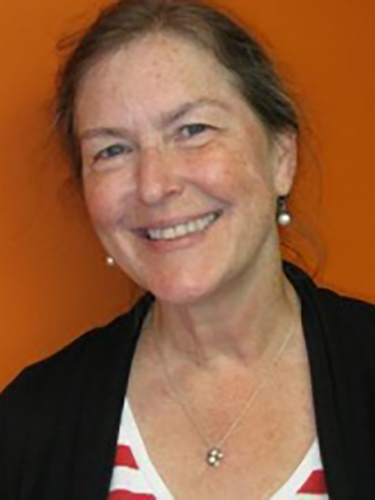
Maureen Quinn Lores - FCH-SNAP Program Coordinator, Oregon State University Extension, Washington County
Social Services Providers’ Strategies to Improve Older Adults’ Food Security
Despite a constellation of social services available to older adults to address food and other basic needs insecurity, older adults may face numerous hassles and barriers to accessing and using these services. The COVID-19 pandemic worsened risk factors for food insecurity while also limiting the ways in which agencies could support older adults given their disproportionate vulnerability to the virus. To identify ways to support older adult food security, we interviewed22 social service providers from 13 public and private social service agencies across Oregon. Findings from our study identified 1) a broad range of strategies and suggestions for individual, interpersonal, community, and policy-level practices and 2) specific ways in which the pandemic altered older adults’ access to food and other resources. This session will engage participants in a discussion of the identified strategies and their implications for policy and practice. This work represents an important step in further developing an agenda for more effective and comprehensive support of older adult food security.
Biography
Coming Soon
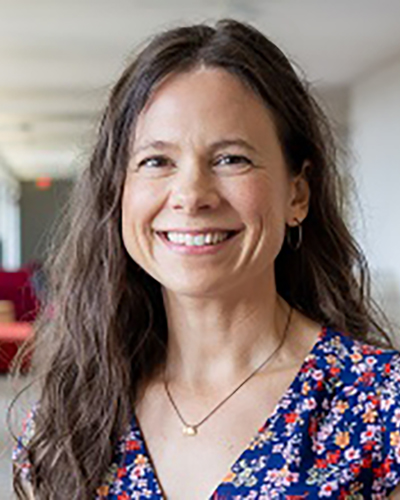
Candace R. Russo, MS - Program Manager Moore Family Center, College of Public Health & Human Sciences, Oregon State University
Hope Grows Here
A supportive gardening, nutrition education, and social-emotional wellness program for adult cancer survivors in Linn and Benton counties. As a population, cancer survivors tend to be older adults (65+), and experience health disparities such as functional decline, an increased risk of chronic pain/fatigue, comorbidities, cancer recurrence or second cancers, emotional distress and decreased quality of life. There is a critical need to identify strategies to support cancer survivors in adopting and sustaining healthy behaviors, as recommended to prevent future cancers and improve overall physical and mental health. Hope Grows Here was delivered fully remotely during the year 1 pilot (2021) to eleven cancer survivors. Participants took a 4-week basic gardening class taught by Master Gardener (MG)volunteers, were provided tools and supplies to start a home vegetable garden and were paired with a MG mentor. Participant/mentor dyads met weekly during a four-month timeframe as participants practiced planting and tending their summer vegetable gardens, with encouragement and expertise from their MG mentors. Near summer’s end, OSU nutrition and dietetic student volunteers curated a recipe booklet featuring foods grown in participants’ gardens. Validated surveys were administered both pre- and post-program to measure fruit and vegetable consumption, physical activity, mental well-being, social supports, and sense of community. A process evaluation and 1-year follow-up focus group were implemented in 2022 to refine and improve the project prior to year 2 (2023).Significant results from year 1 included an increase in moderate physical activity (p<0.05), and an increase in mental well-being (p<0.05). 100% of the participants completed the six-month program, 100% would recommend it to other cancer survivors, and 100% found their MG mentors to be helpful to their gardening practice. Please join us for a presentation of the Hope Grows Here program, next steps for this project, and discussion around expanding to other counties.
Biography
Candace earned her M.S. in Soil Science with a minor in Horticulture from OSU in 2005, where she investigated sustainable vegetable production. Candace also has a B.S. in Biological Sciences and science teaching certification from Michigan Technological University. For more than twenty years she has been able to apply her passion for science education and outreach to audiences of all ages in Michigan, Hawaii, and Oregon, including as a garden and program manager for the Healthy Youth Program – a former youth and family nutrition outreach effort at the Linus Pauling Institute. Currently a program manager at the Moore Family Center in the College of Public Health and Human Sciences at OSU, and concurrently working toward aboard certification in Horticultural Therapy, Candace is the coordinator for Hope Grows Here, a gardening and nutrition education program for cancer survivors, in its second year of implementation.
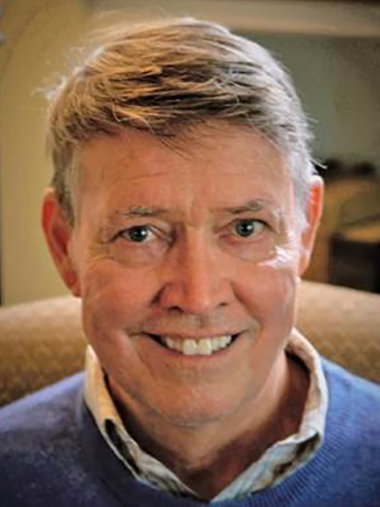
J. Michael Schultz - AARP Oregon Volunteer State President
Vital Voices: Getting a Pulse on Issues that Matter
From health, caregiving, independent living, financial security to livable communities, learn about the needs and interests of the 45+ population across Oregon. Join AARP Oregon for this interactive session to hear the results from the 2023 AARP Vital Voices survey and share your thoughts on challenges and opportunities to address issues. Join the conversation.
Biography
J. Michael Schultz’s 35+ year nonprofit career focused on philanthropy, administration, and executive leadership. He retired in 2021 as Executive Director and Philanthropy Officer for Legacy Health in Portland, where he collaborated with donors, foundation trustees and leadership to secure philanthropic resources for health care initiatives and programs. Formerly, he served as Vice President of Community Impact and Director of Strategic Marketing for the United Way of the Columbia Willamette where he helped develop funding strategies for community investments and impact initiatives such as 211info, Success by Six, and other community enhancement programs. In his early career as Executive Director for the Southeast Asian Refugee Center in Vancouver, WA and Head Start Director for Utah Navajo Development Council, he served immigrants, refugees, and marginalized communities. He has held many professional leadership roles, including Chair of the 211info Board of Directors, Co-chair of Oregon Volunteer Commission, Chair of Multnomah County Citizen Involvement Committee, and President of the American Marketing Association’s Oregon Chapter. Currently he serves as AARP Oregon Volunteer State President. Michael has a B.S. in Sociology and a M.S. in Urban Studies and Policy Analysis.
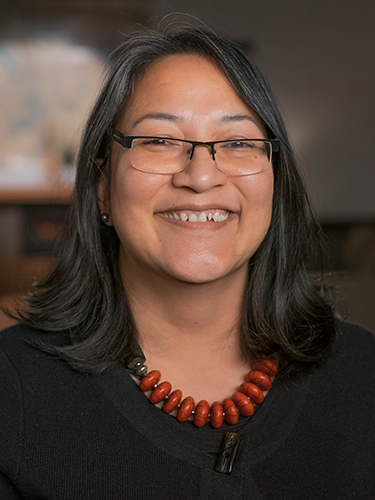
Bandana Shrestha - State Director for AARP Oregon
Vital Voices: Getting a Pulse on Issues that Matter
From health, caregiving, independent living, financial security to livable communities, learn about the needs and interests of the 45+ population across Oregon. Join AARP Oregon for this interactive session to hear the results from the 2023 AARP Vital Voices survey and share your thoughts on challenges and opportunities to address issues. Join the conversation.
Biography
Bandana Shrestha is the State Director for AARP Oregon where she leads and supports AARP vision of health security, financial resilience and community engagement for over 500,000 members, as well as Oregonians 50+ and their families across the state. During her 20+ year career as a leader in local, national, and international organizations, Bandana has worked to drive people-powered solutions to affect positive social change, improve lives, and transform communities. Bandana is a graduate of Linfield College and University of Oregon and lives in Happy Valley with her husband and son.

Anna Soderlund Hough - Education Program Assistant, Moore Family Center
Nutrition Playground for Healthy Aging
Come enjoy nutrition education at a food-themed playground. The Nutrition Playground will offer interactive learning games for a variety of gamer motivations (such as social, achievement, mastery, fantasy, creativity and destruction), samples of an improvised whole grain recipe with conversations about flavor profiles, and a couple of 5-minute mini lectures about food trends and food as medicine.
Biography
Anna joined Moore Family Center in summer 2022. She is grateful for the opportunity to facilitate hands-on learning for youth, adults, and families in nutrition and healthy cooking. After earning degrees in Environmental Studies and Anthropology from the University of Michigan, Anna gained more than 10 years’ experience in nonprofit community education with a focus on nutrition, organic gardening, and culinary arts. Additionally, she worked in the restaurant industry for many years as an artisan bread baker. Anna’s dream is to create learning and cooking environments that are free of judgment and full of curiosity, connection, and mutual growth. The things Anna loves most include recipe testing and adaptation, trauma-informed community engagement, trail running, and yoga and mindfulness practices.
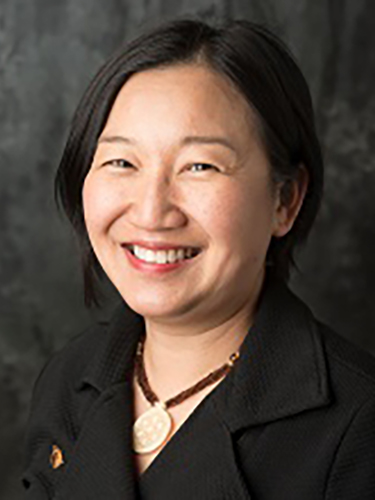
Siew Sun Wong, PhD - Professor; Interim Endowed Director Professor; Interim Endowed Director of the Moore Family Center for Whole Grain Foods, Nutrition and Preventive Health
Nutrition Playground for Healthy Aging
Come enjoy nutrition education at a food-themed playground. The Nutrition Playground will offer interactive learning games for a variety of gamer motivations (such as social, achievement, mastery, fantasy, creativity and destruction), samples of an improvised whole grain recipe with conversations about flavor profiles, and a couple of 5-minute mini lectures about food trends and food as medicine.
Biography
Siew Sun earned her doctorate degree in Nutrition and Food Sciences with an emphasis on Community Nutrition and Epidemiology at Utah State University. Her research areas are obesity prevention and youth calcium consumption. Her interests include innovative nutrition education, especially among low-income families, where she develops and evaluates education games. She is also interested in tech-aided dietary assessments, Extension program evaluation, and international nutrition. She mentors undergraduate and graduate students to appreciate, enjoy, and excel in interdisciplinary research and Extension. She currently teaches issues in nutrition and health, and coaches multisector teams with the USDA Extension Foundation Impact Collaborative Team on multidisciplinary innovation skill building experience.

